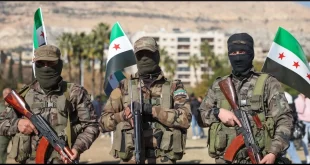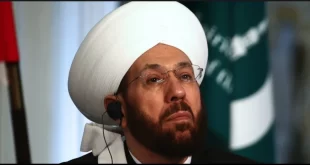Oct 31, 2013, Strategic Culture
The Saudi spat with its historic Washington ally has several ways of playing out. Jilted over American «double standards» in the Middle East (how ironic is that?), senior members of the House of Saud, including intelligence chief Prince Bandar bin Sultan, have hinted that the oil-rich kingdom may shop elsewhere for its billion-dollar weapons toys that it traditionally sources from Washington. Given the parlous state of the US industrial economy, such a loss of exports in a key revenue sector, would be a nasty blow…
Another line for a Saudi sting against the «feckless Americans» might be to throw an oily spanner into US-Iran talks over the long-running nuclear dispute. Specifically, Saudi Arabia – the main productive force in the OPEC oil cartel – could make sanctions relief for Iran a problematic order.
Not that Washington cares too much about affording sanctions relief per se, but the Saudi recalcitrance could damage what appears to be a cynical gambit by the US to engage with Iran diplomatically for geo-strategic reasons.
For the Saudis, this opportunity for vandalism would be sweet revenge for their exasperation with perceived American flip-flopping on Syria and Iran. The Wahhabi Saudi kingdom is obsessed with the defeat of Shia Islam represented by Iran and its allies in Syria and the Hezbollah militia in Lebanon. That obsession is borne out of arcane sectarian religious animosity and also out of more mundane political rivalry. The prestige of the Iranian revolution across the Middle East and its trenchant anti-imperialism are dangerous inspirations to the Arab Street, from the House of Saud’s point of view.
So, the apparent about-turn in US policy, first in baulking at the launch of an all-out military strike on Syria last month, and then secondly, the surprise US-led rapprochement towards Tehran over the decade-old nuclear dispute, has provoked Saudi ire to its very theocratic foundations.
That explains the extraordinary huff expressed recently by Prince Bandar, the Saudi spymaster. Given his close contacts with the Washington establishment owing to his role as ambassador for 22 years (1983-2005), we can be sure that Bandar’s reported griping and threat-making to Western diplomats was designed to send a stern message from the House of Saud to senior US government figures. The Saudis are not merely disgruntled with their American patron; they are aggrieved by what they perceive as betrayal.
From the House of Saud’s precarious position as unelected rulers of the world’s biggest oil-exporting country – where elite wealth sits incongruously alongside massive poverty among the 20 million indigenous population – there stems an intense zero-sum mentality. Any perceived setback to the rulers or concession to rivals is intolerable to the despotic regime’s sense of its own insecure authority, both at home and regionally. That is why its reactions are so vehement, such as the furious rejection earlier this month of a non-permanent member seat on the UN Security Council – again, another action aimed at showing displeasure with Washington.
Saudi animosity towards Iran, Syria and Hezbollah – the Shia Crescent – is of course nothing new. Such geopolitical envy can be traced back to the Islamic Revolution of 1979. For its own hegemonic reasons, Washington has cultivated the Saudi rivalry with Iran, viewing the Saudi-led Sunni monarchies of the Persian Gulf as a bulwark against Iranian-inspired popular uprisings. Bahrain is perhaps the best example, where the US and Saudi Arabia have colluded in crushing the pro-democracy movement in Bahrain that arose during the Arab Spring of 2011. The counter-insurgency propaganda of the Bahraini and Saudi regimes, with tacit approval from Washington, blames the uprising on the subversive agency of Iran and Hezbollah. Iran denies any such political interference in the internal affairs of the Sunni monarchies. Tehran maintains, with sound reasoning, that the unrest in Bahrain, Saudi Arabia and the other oil sheikhdoms is simply a reflection of the gross democratic deficit in these fascistic states.
The Arab Spring also gave the House of Saud a golden opportunity to hit back against the Shia Crescent by joining in the Western-led covert war for regime change in Syria. By unseating the government of President Bashar al-Assad that would, so the logic went, deliver a powerful blow to Iran’s regional influence.
But the military option against Syria and Iran has proven to be a blunt instrument that has yielded little result, as far as Western strategic objectives are concerned. Both Syrian and Iranian governments remain unbowed despite years of brutal aggression in the form of proxy mercenary armies against the former and a barrage of economic sanctions on the latter.
This would explain why Washington and its Western allies, Britain and France, now seem prepared to exercise the political option through diplomatic negotiations. It’s not that Washington has given up on its strategic objectives of thwarting both Syria and Iran. It is just that the tactics are shifting, from military aggression to political wrestling. As Prussian military theorist Carl Von Clausewitz (1780-1831) aptly put it, war is but a continuation of politics by other means, and vice versa.
From Washington’s point of view, this shift would kill two strategic birds with one stone. By engaging Iran and Syria into a political process, concessions might be traded one against another, with the all-important result of undermining both governments. A potential point of attack would be Iran’s urgent need for economic sanctions to be lifted.
The alacrity of Iran’s new diplomatic push over the nuclear deadlock shows that the Islamic Republic has an acute need to remove the Western embargo on its economy. It is reckoned that the combination of US and European Union sanctions imposed on Iran in mid-2012 alone has hit oil exports by more than half, resulting in a loss of revenues of $35 billion over the past year. That can only be described as devastating, to say nothing of criminal aggression.
The Iranian election of President Hassan Rouhani in mid-June and the appointment of Western-educated Mohammed Javad Zarif as foreign minister have brought a sea-change in Iran’s relations with Washington, the P5+1 group of UN Security Council members plus Germany, the EU and the UN’s atomic watchdog, the International Atomic Energy Agency. Talks with the IAEA this week in Vienna were described as «serious and earnest». All such talks have been reported as «constructive» and «progressive». This dramatic change can largely be seen as a manifestation of Iran’s pressing need to alleviate Western strictures on its economy.
But this diplomatic development can also be viewed as Washington and its Western allies wanting to engage Iran politically for their own pressing tactical reasons, with regards to realizing strategic objectives towards both Iran and Syria.
Following the first round of negotiations between Iran and the P5+1 group in Geneva last month, there was dizzying high praise from Washington and European powers. But ahead of the second round of talks scheduled in Geneva next week, there have been assorted signals that Washington and the Europeans are reverting to playing hardball.
The Obama administration is saying that there will no sanctions relief any time soon and that Iran will have to present concrete evidence that it is not pursuing nuclear weapons. The US Congress is also preparing to pass a bill that will ratchet up the sanctions regime even more, while the EU is reportedly stepping up enforcement of its embargoes on Iranian shipping and finance.
The effect of this hardball will make Iran amenable to acceding to political concessions, especially as it gains the tantalizing whiff of sanctions relief. Here Iran has to tread carefully because of its own domestic population who are deeply suspicious of Western intentions. So far, the Rouhani presidency insists that the country’s right to enrich uranium at the 20 per cent level for civilian purposes is non-negotiable. It is inconceivable that the government in Tehran would survive politically if it were to give way on such a redline issue. That raises the question of what other concessions the West might demand from Iran for the latter’s much-needed sanctions relief?
Perhaps the Iranians might be asked to act as an interlocutor to enable the West to extract concessions from the government in Damascus regarding the imposition of a transitional government there.
In pursuing its political machinations, the West has to proceed smartly and delicately too. For one thing, it has to appear to be giving the Iranians something, otherwise Iran will not engage, or the Iranian masses will demand complete withdrawal from a futile process.
In that regard, it is significant that the White House is saying that it is considering the unfreezing of Iranian assets worth up to $50 billion. That amount would more than compensate for the loss in oil revenues for Iran over the past year.
And it seems that Iran is anticipating a return to international oil markets because of the warmer diplomatic climate. The Reuters news agency reported last week: «Iran is reaching out to its old oil buyers and is ready to cut prices if Western sanctions against it are eased.»
The report added: «New Iranian President Hassan Rouhani’s ‘charm offensive’ at the United Nations last month, coupled with a historic phone call with US President Barack Obama, revived market hopes that Iranian barrels could return with a vengeance if the diplomatic mood music translates into a breakthrough in the standoff over Tehran’s disputed nuclear program.»
Reuters quoted a senior oil trader as saying: «The Iranians are calling around already saying ‘let’s talk’ … You have to be careful, of course, but there is no law against talking.»
Now, here is where the Saudis smarting over US «betrayal» could play havoc with Washington’s tactical engagement with Iran and Syria.
Iran’s forced withdrawal from oil markets due to Western sanctions has been replaced by a spike in Saudi oil production, which has helped to maintain market prices at around $100 a barrel over the past year. Saudi oil output is said to be at an all-time high, towards its full capacity of 12 million barrels a day.
For Washington to engage Iran in a political process, even for entirely cynical reasons, it will need to show a certain degree of flexibility in allowing Iran to resume at least a portion of vital oil exports. However, that overture is, as it turns out, the prerogative of Saudi Arabia, whose extra oil output has covered the global shortfall from sanctioned Iranian supplies. The Saudis are unlikely to facilitate any resumption of Iranian oil business.
In that way, the Saudis have the power to throw a very oily spanner in the diplomatic wheels that Washington is trying to turn with Iran.
 Syria Support Movement solidarity with the Syrian people
Syria Support Movement solidarity with the Syrian people





